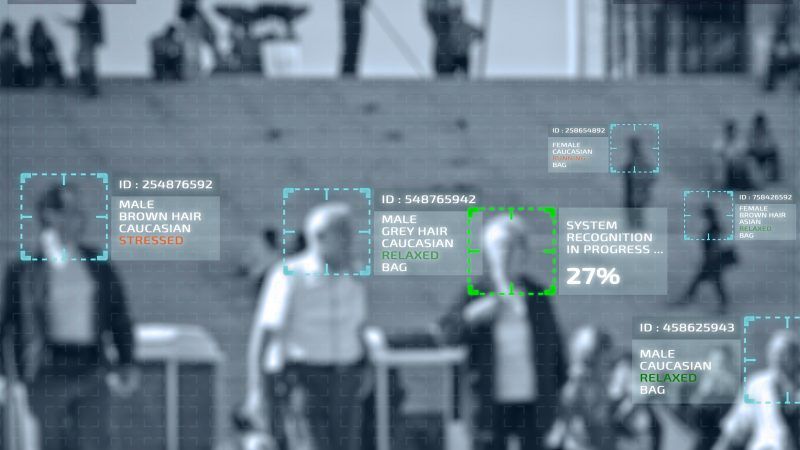San Francisco a Step Closer to Banning Police Use of Facial Recognition Surveillance
Other state and cities should consider doing the same thing

The San Francisco city government is on the verge of enacting a ban on the law enforcement use of facial recognition surveillance technology. A version of the Stop Secret Surveillance Ordinance has passed a committee vote and the whole San Francisco Board of Supervisors will vote on the proposed ban on May 14. The ordinance states that "it shall be unlawful for any Department to obtain, retain, access, or use: 1) any Face Recognition Technology; or 2) any information obtained from Face Recognition Technology."
In addition, city law enforcement agencies will be required to submit a justification for the use of any other electronic surveillance technologies currently in use. If the Board of Supervisors fails to approve the requested use of a surveillance technology after 180 days the city agencies must cease using it. Surveillance technologies that require approval include cell tower spoofing devices, automatic license plate readers, electric toll readers, and closed-circuit television cameras. If these surveillance technologies are approved, law enforcement must transparently report how they are being used.
As I earlier reported, the Project On Government Oversight (POGO), a nonpartisan watchdog, issued its Facing the Future of Surveillance report in March which called for applying Fourth Amendment unreasonable search and seizure standards to the use of facial recognition surveillance by law enforcement.
Among other things, the POGO report recommends that the government must obtain a probable-cause warrant whenever it seeks to use facial recognition to identify an individual. Using facial recognition for field identification must be limited to situations in which an officer has stopped someone based on probable cause that the individual has committed, is committing, or is about to commit a crime. Exigent circumstances such as IDing a missing person are excepted.
The report also recommends that the government should not be permitted to regularly scan locations and events, tag every individual without identifying them by name, save and update these profiles, and then use this stockpile of data to match a recorded profile once an individual becomes a person of interest. Creation of mass databases of these "metadata profiles" would severely undermine privacy and would risk chilling public participation in sensitive activities.
Importantly, the POGO report argues that the principles of federalism should be followed too, so states and localities can enact stronger protections that are not preempted by any federal action. San Francisco's Stop Secret Surveillance Ordinance is a step in the right direction and one that many other states and municipalities should consider taking.
Editor's Note: As of February 29, 2024, commenting privileges on reason.com posts are limited to Reason Plus subscribers. Past commenters are grandfathered in for a temporary period. Subscribe here to preserve your ability to comment. Your Reason Plus subscription also gives you an ad-free version of reason.com, along with full access to the digital edition and archives of Reason magazine. We request that comments be civil and on-topic. We do not moderate or assume any responsibility for comments, which are owned by the readers who post them. Comments do not represent the views of reason.com or Reason Foundation. We reserve the right to delete any comment and ban commenters for any reason at any time. Comments may only be edited within 5 minutes of posting. Report abuses.
Please to post comments


None of this matters unless the ban also affects Federal law enforcement agencies.
If it doesn't - then the local cops will just partner with the Feds to backdoor this.
Or state agencies I believe.
A: Your assessment is likely right but my hope is that local action will rouse action (eventually) at the federal level.
What is the city government planning that they need to suppress this excellent peace and freedom technology?
The San Francisco City Council proves that even a stopped clock is right twice a day. My sincere congratulations to them for getting this issue right. Now, how about working on the rest of their mess?
And they blew it.
So, I keep thinking about how all of these surveillance hightech tools are different from just having a few cops on the beat in a small town. Certainly Sheriff Andy knows everyone, and has a good idea of what they're about; thus it's not about anonymity (often confused with privacy). Rather, there is something fundamentally different when "the cop" never sleeps, has perfect permanent recall, and can combine every bit of what he sees with every other "cop" on the planet. At that point, we really have lost our privacy. How do we get this point through to those who are willing to 'do anything if it prevents one child from stubbing his toe'? (I mean the well intentioned fools, not the politicians who know exactly the hell they are trying to lead us into.
not to mention he is everywhere ...
how can SF be so right about some things, and actively wrong and in denial about others??